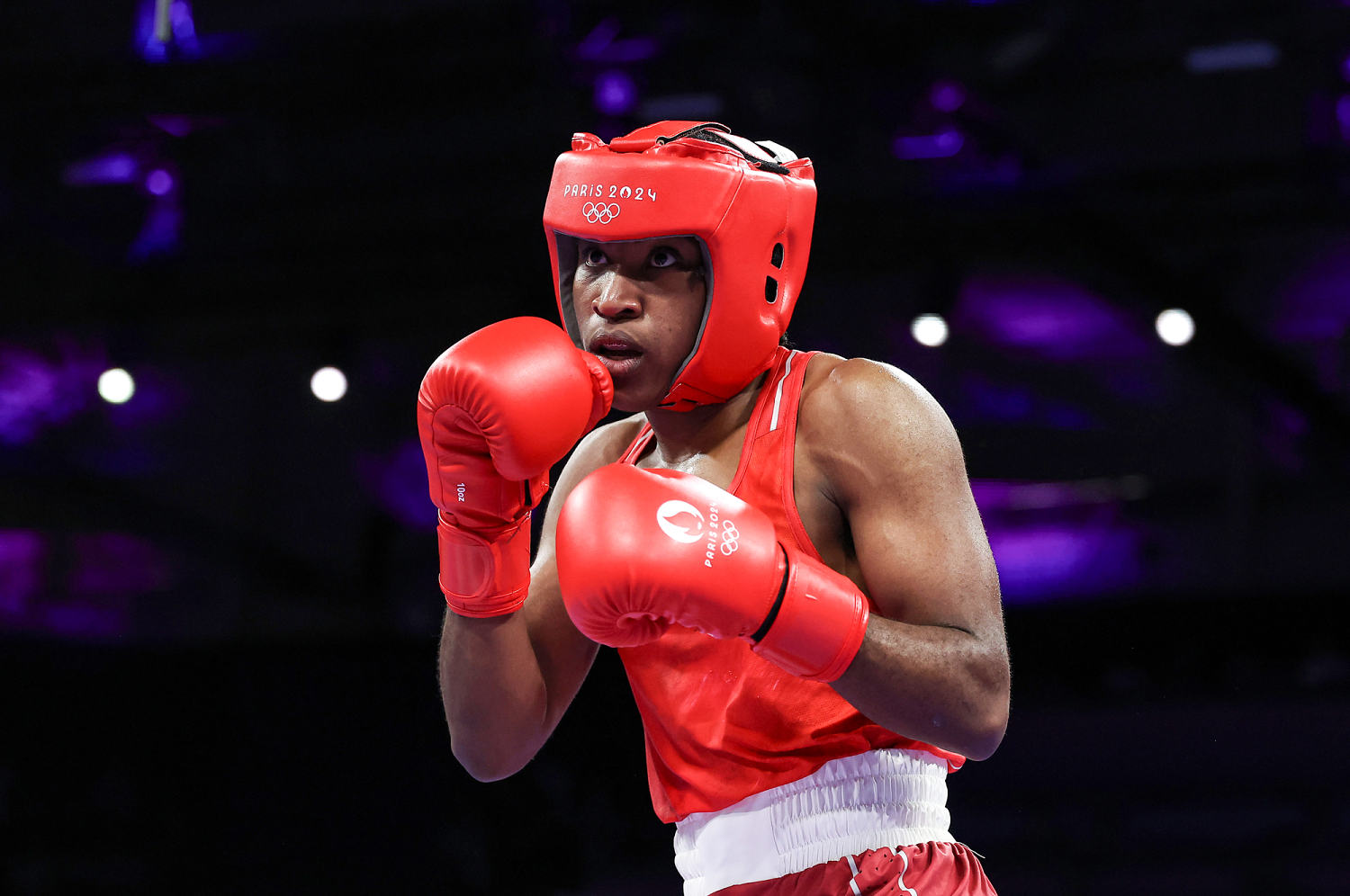
VILLEPINTE, France — Boxer Cindy Ngamba made history on Sunday by becoming the first athlete competing as a refugee to clinch an Olympic medal. The 25-year-old originally from Cameroon offered hope for the Refugee Olympic Team that was created to call attention to the plight of refugees across the world.
Ngamba’s victory at the Paris Games comes after a fierce bout with French boxer Davina Michel in the women’s 75-kilogram quarterfinals in front of a passionate French crowd.
Ngamba, who screamed and pumped her fist when she won, has scored at least a bronze medal as she advances to the semifinals Friday night. She will face Atheyna Bylon, who ensured that Panama would get its fourth-ever Olympic medal with her own win shortly after Ngamba’s fight.
“It means the world to me to be the first ever refugee to win a medal,” Ngamba told reporters. “I want to say to all the refugees around the world … keep on working hard, keep on believing in yourself.”
She was a flag bearer for the 37 athletes making up the biggest Refugee Olympic Team since the idea was born ahead of the 2016 Summer Games in Rio de Janeiro. The International Olympic Committee created the team as a way for displaced athletes and migrants to participate fully in the Olympics without help from national federations.
Ngamba moved to the United Kingdom at the age of 11 and said she was granted refugee status in 2021 because she could have been imprisoned for being gay in Cameroon. She has said boxing has been her escape from the chaos — it’s also lifted her up to the international stage.
She told reporters Sunday that she struggled when she first moved to the U.K., going from a bubbly kid in Cameroon to an introvert as she learned English and adapted to her new home. She said she found her home in boxing and on the Olympic team.
“I had my family and my team by my side every day,” she said. “The refugee team welcomed me with open arms.”
Ngamba, who upset former world champion Tammara Thibeault of Canada in her first bout, entered her Sunday match aggressively against Michel, quickly dodging the French boxer’s swipes. Michel received deafening cheers from French fans, while Ngamba said she heard boos in North Paris Arena.
“I think I only listened to boos as I walked into the ring,” Ngamba said, adding that the spectators were just another group of people who didn’t believe in her throughout her journey to get where she is today.
While some of the athletes on the refugee team have already won Olympic medals for their countries in past Games, Ngamba has been seen as the team’s best chance at medaling in Paris.
The success of Ngamba and other athletes on the refugee team comes at a time of record migration and as 100 million people around the world have been forcibly displaced from their homes. The Refugee Olympic Team has nearly quadrupled in size since its debut.
The team is “a symbol of inclusion, of equality, of achievement for a large community around the world of refugees and displaced people,” U.N. High Commissioner for Refugees Filippo Grandi told the AP in an interview last week.
Grandi congratulated Ngamba, writing on X: “You do us all very, very proud! And now onward to gold.”
The refugee team was among the first Olympic delegations to cruise along the Seine River in the opening ceremony last week.
Ngamba’s victory comes as women’s boxing has drawn intense scrutiny in recent days as fighters Lin Yu-ting of Taiwan and Imane Khelif of Algeria faced a cascade of online abuse, with comments falsely describing them as transgender or men. Both boxers won their fights this weekend as the IOC backed both women and warned against turning the competition into a “witch hunt.”
Looking forward to her next match, Ngamba wants to keep sending a message of hope to refugees everywhere, saying that while she’s got at least a bronze medal locked down, she’s going for gold.
“Hopefully in the next round, I will get the job done — not hopefully. I will get it done,” she said with a smile.
